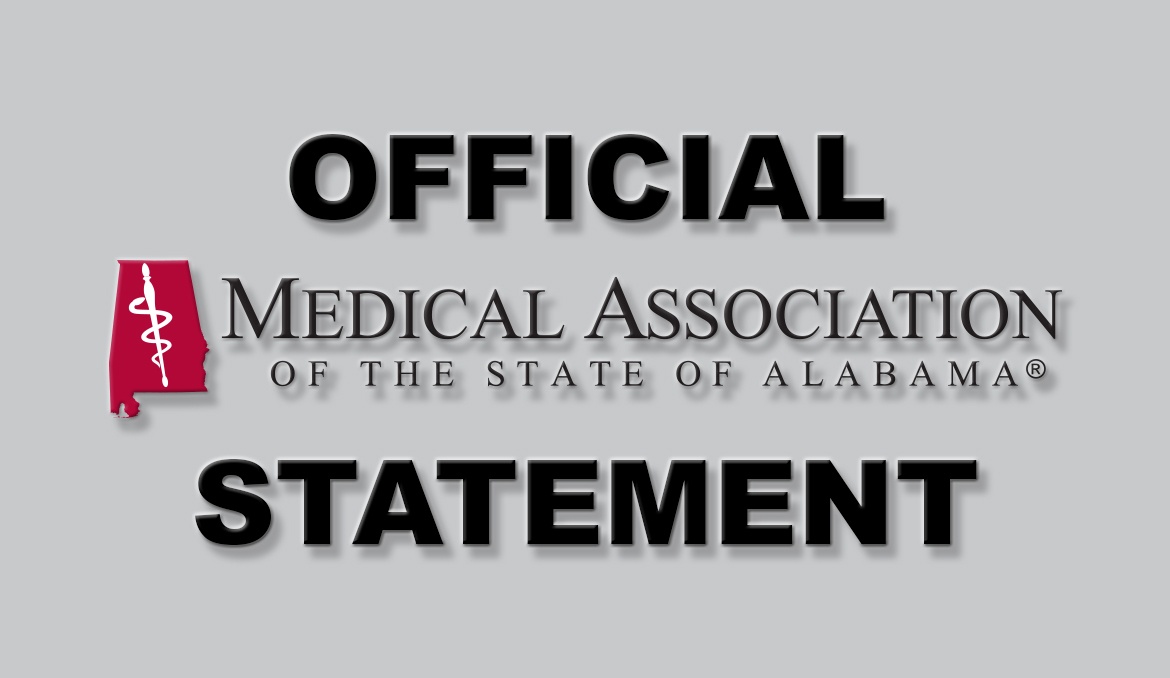Alabama Delegation Supports AMA Resolution Opposing Proposed VA Rule
UPDATE June 16, 2016: This week at the AMA Meeting the Association’s AMA Delegation joined others in support of a resolution opposing the proposed Department of Veterans Affairs rule that would expand the role of all Advanced Practice Registered Nurses, including nurse anesthetists.
The AMA resolution in opposition to the VA proposal follows earlier statements in opposition to the rule, and is in line with the Association’s position, and reads that the policy in the rule is “antithetical to multiple established policies of our AMA and thus should not be implemented.” The resolution directs AMA staff to assess feasibility of pursuing federal legislation to prevent the rule, calls on Congress to disapprove the rule, and suggestion collaborations between the AMA and other medical professional organizations to oppose the final adoption of the rule.
Dr. Carolyn Clancy, the VA’s Assistant Deputy Under Secretary for Health Quality, Safety and Value, spoke before the AMA reference committee encouraging members to submit comments during the 60-day public comment period, which ends July 25. Comments may be submitted online at www.SafeVACare.org.
It is the opinion of the Medical Association that this proposed rule change would undermine the delivery of care within the VA system. Our country’s health care system relies on physician-led teams to improve care and reduce costs. Physicians receive more than 10,000 hours of education and training and bring a wealth of value to the health care team. To deny any patient access to qualified physician-led, team-based care is simply inadequate, and our nation’s veterans deserve more from our health care system. In 2014 the Medical Association spearheaded a registry of physicians willing to treat veterans outside the VA system hoping to shorten the amount of time our veterans face before getting appropriate medical care.
Protecting Veterans’ Access to Physician-Led Medical Care
UPDATE June 10, 2016: As previously reported, the Medical Association is joining various medical associations and societies in opposition to the Department of Veterans Affairs’ proposed amendment to its medical regulations to permit full practice authority of all VA advanced practice registered nurses (APRNs) when acting within the scope of their VA employment.
Now, there is a letter being circulated by U.S. Rep. Dan Benishek (R-MI) expressing his “deep concern about the potential impact of this change to the long-standing best practices on the veterans the VHA serves.” Rep. Benishek, who is Chair and Ranking Member of the House Veterans’ Affairs Subcommittee on Health, began circulating his letter of support to continue physician-led health care in the VA medical system in late May, wrote “a sudden change to the status of nurses and the abandonment of the care team model would be extremely disruptive, leaving many of us with inappropriate staffing ratios which would directly compromise patient safety and limit our ability to provide quality care to veterans.”
To date, Alabama Reps. Martha Roby and Mo Brooks have signed on in support of Rep. Benishek’s letter. The Medical Association will be calling on all of Alabama’s Congressional Delegation to do the same. While the Medical Association applauds the VA for addressing the challenges that face the patients inside the VA health care system, the Association is drafting comments to submit opposing the proposed rule because we believe a physician-led team is the best approach to improving quality care for our nation’s veterans.
UPDATE June 3, 2016: The Medical Association will be joining the American Medical Association and other state medical associations and societies in opposition to the Department of Veterans Affairs’ proposed amendment to its medical regulations to permit full practice authority of all VA advanced practice registered nurses (APRNs) when acting within the scope of their VA employment. While the Medical Association applauds the VA for addressing the challenges that face the patients inside the VA health care system, the Association is drafting comments to submit opposing the proposed rule because we believe a physician-led team is the best approach to improving quality care for our nation’s veterans.
This rule proposed by the Department of Veterans Affairs is intended to increase veterans’ access to VA health care by expanding the pool of health care professionals who are authorized to provide primary health care and other related health care services to the full extent of their education, training, and certification, without the clinical supervision of physicians. The proposed rulemaking would establish additional professional qualifications an individual must possess to be appointed as an APRN within VA. The proposed rulemaking would subdivide APRNs into four separate categories including certified nurse practitioner, certified registered nurse anesthetist, clinical nurse specialist, and certified nurse-midwife. The proposed rulemaking would also provide the criteria under which VA may grant full practice authority to an APRN, and define the scope of full practice authority for each category of APRN.
It is the opinion of the Medical Association that this proposed rule change would undermine the delivery of care within the VA system. Our country’s health care system relies on physician-led teams to improve care and reduce costs. Physicians receive more than 10,000 hours of education and training and bring a wealth of value to the health care team. To deny any patient access to qualified physician-led, team-based care is simply inadequate, and our nation’s veterans deserve more from our health care system. In 2014 the Medical Association spearheaded a registry of physicians willing to treat veterans outside the VA system hoping to shorten the amount of time our veterans face before getting appropriate medical care.
Therefore, the Medical Association urges the Department of Veterans Affairs to maintain the integrity of the physician-led health care team model within the VA health system to ensure greater integration and coordination of care for our veterans and improve health outcomes.
